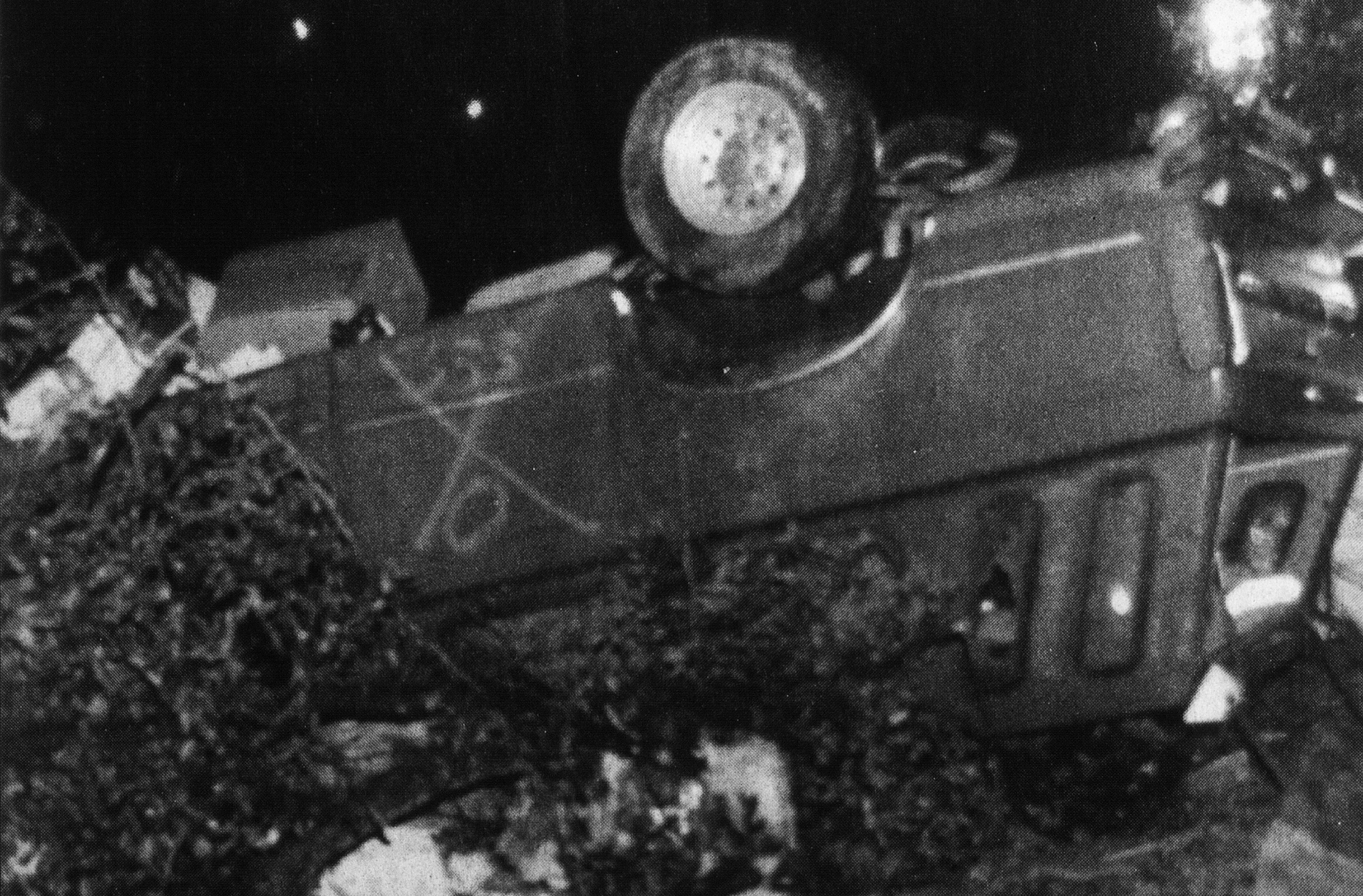Sam Sessa didn’t notice the tornado until he stepped outside of Hornbake Library.
“The sky was green, like this yellowish green,” Sessa, then a freshman at the University of Maryland, recalled. “I’d never seen the sky look like that in my life before.”
Twenty years ago on Sept. 24, a tornado tore through the University of Maryland campus, whipping 200 mph winds, tearing through the University Courtyards apartments and destroying about 300 cars. The storm left two dead, sisters Colleen and Erin Marlatt.
Patricia Marlatt remembers the last hug her daughter gave her. The day before Colleen died, Patricia was standing in the kitchen when, out of the blue, Colleen gave her a hug.
“That hug was just so precious,” she said, her voice cracking.
The next day, her husband, Patrick Marlatt, saw the girls off from the temporary Maryland Fire and Rescue Institute on University Boulevard. After they left, their car was taken into the air near Denton Hall and thrown into the trees across the road.
Patrick was among five people pulled from the rubble of the collapsed MFRI trailers and went to the hospital with minor injuries. He was among the 55 injured by the tornado. The effects around campus and College Park were immense.
About 3,000 students in Denton and Ellicott communities were relocated for several hours after their living spaces were determined to be unsafe, according to Diamondback archives. Athletic facilities were severely damaged, and lacrosse and soccer goals were scattered.
Students from Denton Hall have their own stories of the event, and some were left more impacted than others.
Justin Fenton, an alumnus who was a freshman at the time, remembers watching the funnel coming towards the common area of Denton Hall. Just two weeks after 9/11, Fenton’s thoughts raced toward the building falling apart with him on the seventh floor.
He stood in his room, watching as the funnel cloud of blue lightning sucked his window fan away. Then, he ran back to the hallway and waited, with a group of people he barely knew.
“The next thing I remember is everybody going down the steps, I think, and trying to get outside to see,” Fenton said.
There was a tree down in front of his building, but other than that, it seemed to Fenton that the tornado had hopped over them completely. It was a traumatic event, but one that he no longer carries with him, Fenton said.
Amie Sessa was lucky enough to get to the basement of Denton Hall when the tornado happened. Afterward, she wandered to her friend’s dorm in Cumberland Hall, walking through the debris-covered campus with no shoes.
September 2001 caused Amie and her husband Sam to grow up quickly.
“We were both 17, we weren’t even adults yet, but I felt like one after that month,” Sam said.
Across the hall from Amie, Michelle Thomas woke up from a midday nap when someone knocked on her door. She sat up, looked out her window, and watched a tornado barrel towards her room.
She made it out, sobbing the entire time. When she got back to her dorm, it was destroyed. The wind gusts shredded the posters and blew out the windows. On the day Thomas moved out, she still found pieces of glass from the tornado in her closet.
Twenty years later, she still struggles with storms and tornado warning alerts, but the stress has eased.
In 2002, the Marlatts began the Colleen and Erin Marlatt Scholarship Fund to support the children of Catholic school educators. Patricia Marlatt, a Catholic school English teacher, says they have awarded over $800,000 in their daughters’ honor and award four scholarships a year.
The Marlatts still smell their daughters’ fresh hair in the house, and feel them watching whenever they see a penny. The girls’ father, Patrick Marlatt, had always kept a fishbowl of change, mostly pennies, and Erin wanted to roll them all and deposit them in the bank.
She tried to, but the bank wouldn’t accept the penny rolls. Nevertheless, she continued to roll them until she died. Afterward, her friends finished the rest of the fishbowl.
“Her cousins report all the time that ‘Erin’s watching over me, I found a penny,’” Patricia Marlatt said.




